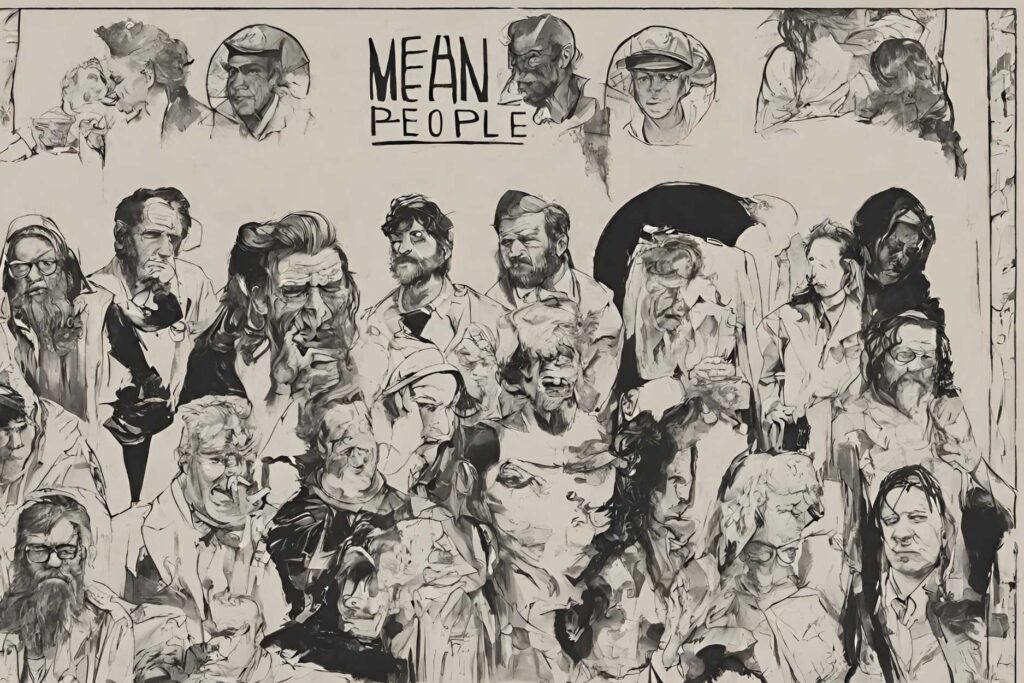Bible verses for all occasions.
Being nice to those who are mean is a challenging concept that goes against our natural instincts. When someone treats us poorly or acts unkindly towards us, our initial reaction may be to retaliate or distance ourselves from that person.
However, as followers of Christ, we are called to a higher standard of love and kindness. The Bible provides guidance and encouragement on how to respond to those who are mean or treat us poorly.

1 Peter 3:9 (NIV)
“Do not repay evil with evil or insult with insult. On the contrary, repay evil with blessing, because to this you were called so that you may inherit a blessing.”
This verse emphasizes the importance of responding to meanness or evil with kindness and blessings. Instead of stooping to their level and retaliating, we are called to rise above and show love. By doing so, we not only inherit a blessing but also demonstrate the transformative power of Christ’s love.
Matthew 5:44 (NIV)
“But I tell you, love your enemies and pray for those who persecute you.”
Jesus teaches us that loving our enemies and praying for those who mistreat us is fundamental to our faith. It may be difficult to love someone who is mean to us, but through prayer and a heart filled with Christ’s love, we can find the strength to extend kindness even to those who don’t deserve it.
Luke 6:27-28 (NIV)
“But to you who are listening I say: Love your enemies, do good to those who hate you, bless those who curse you, pray for those who mistreat you.”
In this passage, Jesus instructs us to love our enemies, do good to those who hate us, bless those who curse us, and pray for those who mistreat us. It is a comprehensive call to respond to meanness or hatred with love and kindness. By doing so, we reflect the character of Christ and show the world that our faith is genuine.

Proverbs 25:21-22 (NIV)
“If your enemy is hungry, give him food to eat; if he is thirsty, give him water to drink. In doing this, you will heap burning coals on his head, and the Lord will reward you.”
This verse encourages us to go beyond being merely nice to our enemies but to actively meet their needs. By showing kindness through practical actions, such as providing food or water, we not only demonstrate Christ’s love but also open the door for reconciliation and the possibility of transforming our enemies into friends.
Romans 12:20-21 (NIV)
“On the contrary: ‘If your enemy is hungry, feed him; if he is thirsty, give him something to drink. In doing this, you will heap burning coals on his head.’ Do not be overcome by evil, but overcome evil with good.”
Again, we are reminded in this verse to respond to evil with good. By overcoming evil with acts of kindness, we break the cycle of meanness and demonstrate the power of Christ’s love. Our actions may even convict the hearts of our enemies and lead them to repentance.

1 Thessalonians 5:15 (NIV)
“Make sure that nobody pays back wrong for wrong, but always strive to do what is good for each other and for everyone else.”
This verse reminds us to refrain from seeking revenge or repaying evil with evil. Instead, we are called to strive to do what is good for others, regardless of how they treat us. This includes being kind and showing love to those who are mean or unkind towards us.
Matthew 7:12 (NIV)
“So in everything, do to others what you would have them do to you, for this sums up the Law and the Prophets.”
Often referred to as the Golden Rule, this verse encapsulates the essence of how we should treat others, including those who are mean to us. By treating others with kindness and respect, even when they don’t deserve it, we fulfill God’s commandments and demonstrate the love of Christ.
Colossians 3:12-13 (NIV)
“Therefore, as God’s chosen people, holy and dearly loved, clothe yourselves with compassion, kindness, humility, gentleness, and patience. Bear with each other and forgive one another if any of you has a grievance against someone. Forgive as the Lord forgave you.”
These verses remind us of our identity as God’s chosen people and urge us to clothe ourselves with compassion, kindness, and forgiveness. By responding to meanness with gentleness and patience, we reflect the character of Christ and extend the same forgiveness that we have received from Him.
Matthew 5:9 (NIV)
“Blessed are the peacemakers, for they will be called children of God.”
This beatitude emphasizes the importance of being peacemakers and striving to bring reconciliation and harmony among people. When we choose to respond to meanness with kindness and seek peace, we reflect our identity as children of God and demonstrate His love to the world.

James 1:19-20 (NIV)
“My dear brothers and sisters, take note of this: Everyone should be quick to listen, slow to speak and slow to become angry because human anger does not produce the righteousness that God desires.”
These verses remind us to exercise self-control and patience when faced with meanness or unkindness. Instead of reacting in anger or retaliation, we are called to be quick to listen, slow to speak, and slow to become angry. By doing so, we create an environment that is conducive to understanding, healing, and reconciliation.
Being nice to those who are mean is not an easy task, but as followers of Christ, we are called to emulate His love and extend kindness even to our enemies. The Bible provides us with guidance and encouragement on how to respond to meanness with love, forgiveness, and compassion. By following these teachings, we not only reflect the character of Christ but also open the door for healing, transformation, and the possibility of reconciliation.






